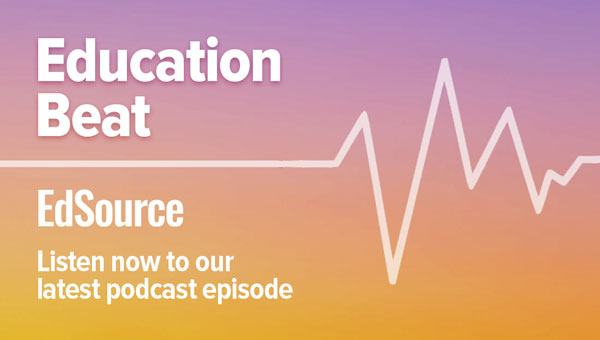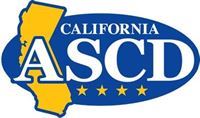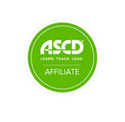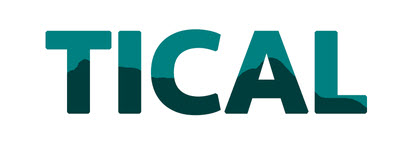EdSource
Legislation
These are the education bills Gov. Newsom signed or vetoed
Published
October 13, 2025





October 9, 2025 - For Chelsea Duran, returning to high school for her senior year means being on high alert, watching over her shoulder for immigration enforcement agents.
Subscribe and view more
Gov. Gavin Newsom signs legislation related to student literacy, surrounded from left, Alberto Carvalho, superintendent of the Los Angeles Unified School District, Marshall Tuck, CEO of EdVoice, and Martha Hernandez, executive director of Californians Together, in Los Angeles on Oct. 9, 2025.
California legislators and representatives of education advocacy organizations and unions spent hundreds of hours negotiating education bills this legislative session.
Controversial legislation, which included changing the way students are taught to read, increasing charter school oversight, and confronting antisemitism at schools, had many lawmakers and advocates working nights and weekends to reach a consensus.
There were other key pieces of legislation, including bills that will phase out ultra-processed foods, prohibit schools from allowing immigration officers on campuses without a warrant, and make it easier for high school students to attend a California State University.
Gov. Gavin Newsom had until midnight Monday to sign legislation.
Author: Assemblymember Mark González, D-Los Angeles
What will it do: Require student ID cards in California’s public middle schools, high schools and colleges to include the phone number for The Trevor Project, a leading crisis and suicide prevention hotline for LGBTQ youth.
Status: Signed
Newsom said: “Every student deserves to feel safe, supported, and seen for who they are. While some in Washington turn their backs on LGBTQ youth, California is choosing compassion over cruelty. AB 727 makes it clear: your identity doesn’t disqualify you from care and community — it’s exactly why we are fighting to make it easier to reach.”
— Diana Lambert
Commission on teacher credentialing: Assembly bill 1123
Author: Assemblymember Al Muratsuchi, D-Torrance
What will it do: Modifies the composition of the California Commission on Teacher Credentialing (CTC) to allow for early childhood education representation without expanding the total number of commissioners.
Status: Signed
Muratsuchi said: “The State of California issued the first Child Development Permits to early childhood educators in 1961, making it the first state to professionalize this critical workforce. But in the six decades since, early childhood education (ECE) professionals in California have never had a voting member on the commission, which governs their licensure and preparation.”
— Diana Lambert
Authors: Assemblymembers Rick Chavez Zbur, D-Hollywood, Dawn Addis, D-Morro Bay
What will it do: The bill aims to reduce antisemitism in schools by establishing a new Office of Civil Rights and an Antisemitism Prevention Coordinator, who can help track and report antisemitism in schools, as well as train and advise Local Educational Agencies. It also requires any adopted curriculum to be “factually accurate and align with the adopted curriculum.”
Status: Signed
Newsom said: “California is taking action to confront hate in all its forms. At a time when antisemitism and bigotry are rising nationwide and globally, these laws make clear: our schools must be places of learning, not hate.”
— Mallika Seshadri
Authors: Assembly Speaker Robert Rivas, D-Salinas, and Assemblymembers Al Muratsuchi, D-Torrance, Blanca Rubio, D-Baldwin Park
What it will do: It will provide missing links to California’s comprehensive early literacy reforms, which are effective in other states. The bill would provide teachers with evidence-based resources and training in reading instruction, including phonics in kindergarten and first grade. The State Board of Education would select a new list of instructional materials tied to what’s commonly called the science of reading. Districts must select from the list or justify their choices. The state would update reading instruction in administrators’ credentialing programs.
Status: Signed
Newsom said: “At a time when our federal government is focused on dismantling the U.S. Department of Education, in California, we’re doubling down on our efforts to support our schools, students, and teachers. Through significant investments in initiatives like community schools, universal meals, and literacy coaches — and legislative action like the bill I signed today — we’re working to provide students with the resources they need to succeed. And California’s promising test scores show our efforts are paying off.”
— John Fensterwald
Author: Assemblymember Jesse Gabriel, D-Encino
What it will do: The bill requires the Office of Environmental Health Hazard Assessment to adopt regulations for ultra-processed foods (UPFs), defined as any food or beverage high in saturated fats, sodium, or specific added sugars or sweeteners. It requires schools to begin phasing out harmful UPFs by Jan. 1, 2028. Starting July 1, 2035, the bill prohibits a school district, county superintendent of schools, or charter school from offering a “nutritionally adequate” breakfast or lunch that includes harmful ultra-processed foods or selling food or beverages with UPFs, except as part of a school fundraiser.
Status: Signed
Newsom said: “California has never waited for Washington or anyone else to lead on kids’ health — we’ve been out front for years, removing harmful additives and improving school nutrition. This first-in-the-nation law builds on that work to make sure every California student has access to healthy, delicious meals that help them thrive.”
— Vani Sanganeria
Authors: Assemblymembers Al Muratsuchi, D-Torrance, Liz Ortega, D-Hayward, Celeste Rodriguez, D-Arleta; Sen. Lena Gonzalez, D-Long Beach
What it will do: The bill will prohibit schools from allowing immigration enforcement officers to enter a school campus or question a student unless they have a judicial warrant or court order. It will also prohibit schools from sharing information about a student, family or employee with immigration officials, unless the officials present a judicial warrant or court order.
Status: Signed
Newsom said: “Public safety depends on trust between law enforcement and the communities they serve — but Trump and Miller have shattered that trust and spread fear across America. California is putting an end to it and making sure schools and hospitals remain what they should be: places of care, not chaos.”
— Zaidee Stavely
Author: Sen. Sasha Renée Pérez, D-Pasadena
What it will do: The bill will require school districts, California State University, each California community college district, and each Cal Grant qualifying institution of higher education, as well as request the University of California, to issue a notification to all students, faculty and other campus community members when the presence of federal immigration enforcement is confirmed on campus. These notifications must include the date, time and location of enforcement on campus, as well as a link to additional resources for students and campus community members.
Status: Signed
Pérez said: “The SAFE Act will inform and protect immigrant students and their families on school campuses. In the face of mass deportations, raids and immigration enforcement authorities showing up at schools, the SAFE Act can help inform and empower school communities to make the best decisions about their safety and their family’s safety.”
— Vani Sanganeria
Author: Assemblymember Patrick Ahrens, D-Cupertino
What it will do: This bill repeals the criminal misdemeanor offense under the existing truancy law, meaning that parents of truant students, age 6 or older, in grades K to eighth, can no longer be punished by fines or up to a year in county jail. Students can be labeled as truant after three unexcused absences of more than 30 minutes during one school year. It goes into effect Jan. 1.
Status: Signed
Ahrens said: “Thank you to Governor Newsom for signing my bill to repeal this failed policy of criminalizing struggling California families for their children missing school; families and kids need support, not criminal charges and fines, to improve school attendance. Fining or imprisoning parents did nothing to get kids the education and support they need.”
— Betty Márquez Rosales
Authors: Sen. Susan Rubio, D-Baldwin Park
What it will do: It makes it a crime to threaten to commit a violent act at a school, day care, university, workplace, house of worship or medical facility, on the internet or by other means. The law states that it does not matter if there was no intention to carry out the threat, if it caused people to fear for their safety.
Status: Signed
Newsom said: “California families deserve to feel safe when they drop their kids off at school, go to a doctor’s appointment, or practice their religion.”
— Zaidee Stavely
Author: Assemblymember Celeste Rodriguez, D-Arleta
What it will do: The bill expands the number of relatives who can sign a “caregiver’s authorization affidavit” and be able to enroll a child in school and make decisions about medical care provided in school on behalf of a child to include all adults related to a child by blood or adoption, within five generations, or “degrees of kinship.” This includes great- or great-great aunts or uncles, and spouses of these relatives, in addition to stepparents, stepsiblings and other relatives. It also authorizes a court to appoint a person nominated by a parent to have joint custody of a child if the parent is unavailable due to circumstances such as immigration detention or deportation, and makes it easier for the parent to terminate those rights when they are available again. In addition, the bill extends protections that exist in TK-12 schools to child care facilities and preschools, prohibiting them from collecting information or documents regarding citizenship or immigration status of children or their family members, and requiring them to report requests for information or access to the California Department of Education and the attorney general.
Status: Signed
Newsom said: “Our children deserve to feel safe at home, in school and in the community. We are putting on record that we stand by our families and their right to keep their private information safe, maintain parental rights and help families prepare in case of emergencies.”
— Zaidee Stavely
Author: Sen. Laura Richardson, D-Torrance
What it will do: The bill requires that the Instructional Quality Commission consider including the historical contributions of African Americans in early California history when it revises the curriculum framework in history-social science or adopts new instructional materials.
Status: Signed
Richardson said: “This legislation is a step toward correcting historical omissions, empowering African American students with representation and educating all students to be more informed and socially conscious citizens.”
— Diana Lambert
Author: Sen. Christopher Cabaldon, D-Napa
What it will do: The bill aims to make it easier for qualified California high school students to get admitted to California State University. Eligible high school students — those who have taken the required courses and maintained an appropriate grade point average — will receive mailers directly admitting them to participating CSU campuses.
Status: Signed
Cabaldon said: “It makes higher education the natural next step, not an intimidating maze of forms and fees. Every eligible student deserves that life-changing moment of opening an acceptance letter.”
— Amy DiPierro
CHARTER SCHOOL ACCOUNTABILITY: Senate Bill 414
Author: Sen. Angelique Ashby, D-Sacramento
What it would do: SB 414 will change the oversight, auditing and funding of nonclassroom-based charter schools, establish statewide contracting requirements to prevent misuse of public funds, and extend the moratorium on nonclassroom-based charters until June 30, 2026. The legislation also changes audit procedures for all school districts and charter schools, and creates an Education Inspector General’s Office to investigate allegations of fraud and financial mismanagement.
Status: Vetoed
Newsom said: “I deeply appreciate the efforts of the author and the negotiating parties to develop legislation that builds on these recommendations and the findings of the State Controller. However, this bill falls short. While the oversight and auditing provisions are meaningful, other sections are unworkable, would face legal challenges, and require hundreds of millions of dollars to implement. Additionally, provisions added late in the legislative process undermine important agreements my Administration made during my first term.”
— Diana Lambert
Author: Assemblymember Jasmeet Bains, D-Bakersfield
What it will do: School districts, county offices of education and charter schools can currently request average daily attendance (ADA) credit to make up for decreases in attendance reaching 10% of the student population that occur due to a specified list of reasons. This bill would have added immigration enforcement actions to that list, which includes fires, floods, epidemics, earthquakes, and more, until June 30, 2029. When such a request for ADA credit is made, students must also be offered independent study.
Status: Vetoed
Newsom said: “Current law already provides opportunities for local educational agencies to utilize attendance recovery and independent study programs to recoup lost attendance-based funding, while also ensuring students receive instruction and support. AB 1348 does not include sufficient safeguards to ensure that students who miss school due to immigration enforcement activities will receive alternative instructional opportunities. Additionally, this bill creates substantial cost pressures when state law is already designed to buffer school districts’ budgets from attendance fluctuations by allowing them to use a three-year rolling average of attendance when calculating school funding.”
— Betty Márquez Rosales
Authors: Assemblymembers Avelino Valencia, D-Anaheim, Robert Garcia, D-Rancho Cucamonga, Anamarie Ávila Farías, D-Concord
What it would do: The legislation would help fill vacant teaching positions by doubling the number of days a substitute can teach in a single classroom from 30 to 60 in general education, and from 20 to 60 in special education. The legislation would go into effect on Jan. 1, 2026, and require school districts to report substitute usage in 2026-27.
Status: Vetoed
Newsom said: “Research demonstrates that substitute teachers tend to serve classrooms with a disproportionate number of students with disabilities, English learners, and students from low-income families. While this bill requires local educational agencies to offer mentorship, training and support to substitute teachers, it does not mandate their participation in these programs. As such, this bill would allow individuals to serve our highest-need students for as much as a third of a school year without minimally required training or mentorship.”
— Diana Lambert
2025 EdSource. All Rights Reserved.











